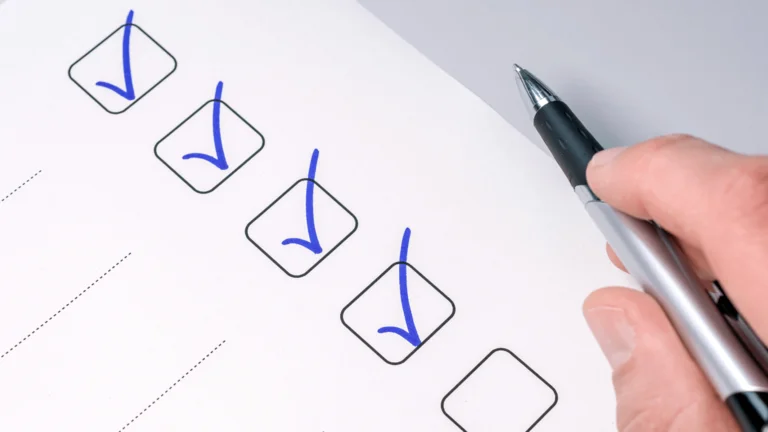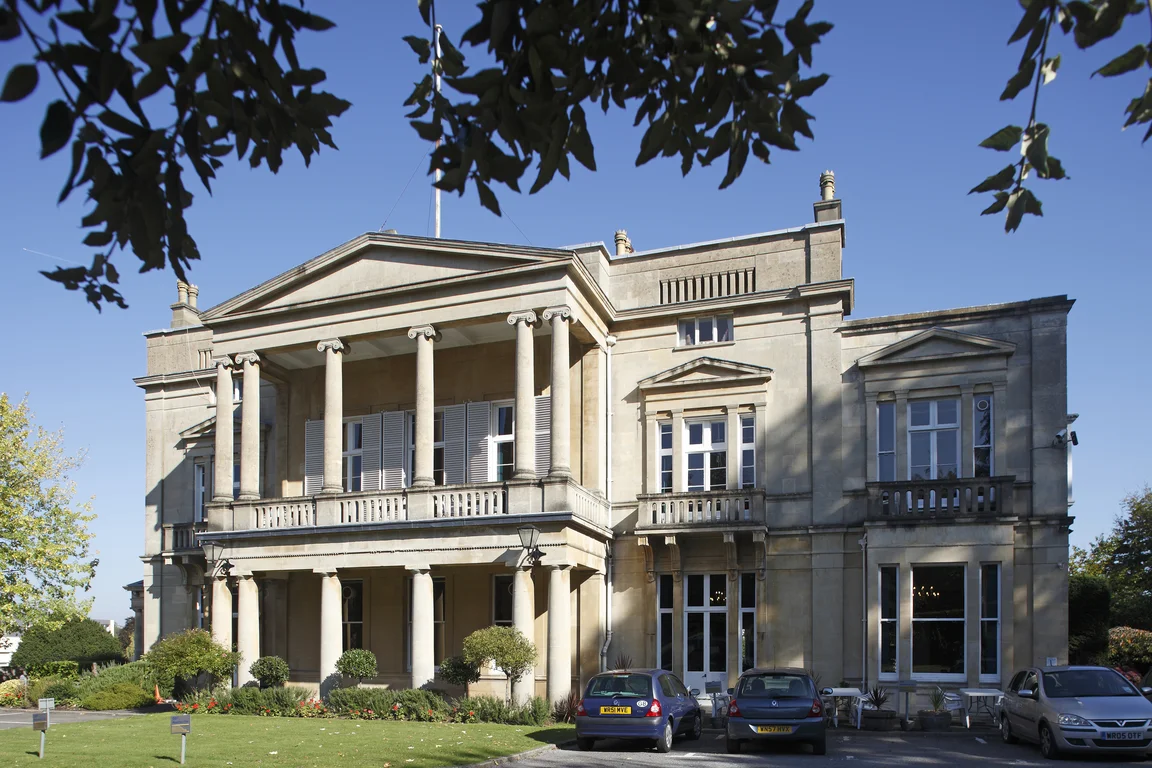When organising an event, there are a number of decisions to be made. Arguably one of the most important is choosing the venue. The space within which you choose to host your event will influence so many other factors such as capacity, flow, catering, travel, theme and beyond, so the information you use when choosing a venue needs to ensure it meets all your needs.
But don’t worry, our guide will serve as a ‘venue checklist’ for everything you need to consider when choosing a venue - so all you have to do is pick one.
Quick Takeaway: Checklist for Choosing an Event Venue
Before Choosing a Venue For Your Event

While choosing a venue is one of the most important decisions that you will need to make, there are certain factors that will help you decide what it is that you’re looking for.
Before choosing a venue, these are the items that should be at the top of your list:
-
Budget
-
Number of attendees
-
Type of event (formal, informal, high-tech etc.)
With these factors in mind, it will make choosing a venue that much easier. The next thing to consider before choosing a venue, is the when and the where.
When to Start Looking at Choosing a Venue for an Event
If you’re pondering when to start looking for a venue, chances are you should already be looking. When looking to organise, promote and hold an event, you should aim to choose your venue as far in advance as possible. This may be weeks, months or even years in advance, depending on the type of event or season.
Booking a venue in advance (at least 4-6 months) ensures you have enough time to plan other areas of your event such as catering, marketing, staff etc.
There are a number of ways to help you in choosing a venue online, particularly if you know what you’re looking for.
Venue Directory Sites
The first way to start searching for your perfect venue is through venue directory sites. These will hold up to tens, hundreds, or even thousands of venues across the UK. Simply enter your criteria and they will show venues that match your requirements.
The other option is to use a venue sourcing agency, however, such agencies often impart a commission fee per booking.
You also have all the tools at your disposal to choose the venue yourself, by searching online for your specific requirements. For example, search “Westminster Venue Hire” or “Westminster Meeting Rooms” and collate a list of all the venues that fit your criteria.
Your Event Venue Checklist

Want to know how to efficiently, and most importantly, successfully choose a venue? We’ve compiled a handy venue requirements checklist packed full of everything you need to know when choosing a venue for your event.
1. Location
Probably one of the most obvious agenda items on our venue checklist is location. Choosing a local venue, or a venue with good transport links can make it easier for attendees to, well, attend.
Your venue should be easy to find and be easily accessible.
Are there Transport Links?

Is the venue near a train station? Airport? Bus interchange? If the venue is not within walking distance within one of these facilities, is there a taxi service available?
Is there parking available? If so, make sure you know exactly where it is and how to get to it, as you will most likely need to be directing attendees.
Is there Local Accommodation?
If the venue is a fair distance for your attendees, it may be worth considering local accommodation. Some venues such as our Leamington Spa venue, Woodland Grange have accommodation onsite, whereas others you may need to enquire locally.
2. Capacity and Minimums

From your initial planning you should know (at least roughly) how many attendees there will be. This will inform the type of venue you will need, and thus the minimum capacity of the venue.
What’s the Capacity of the Venue?
Knowing that event numbers are prone to fluctuating, we’d recommend considering a space that can host slightly larger numbers than your finalised attendee list, just in case.
There are also fire and safety codes that the venue will have to abide by, so ensure you are choosing a venue that has the right capacity for your needs.
What are the F&B Minimums for the Venue?
The majority of events that offer food and beverages usually have a ‘F&B minimum’, which is essentially a minimum spend.
Make sure you’re aware of the minimum spend requirements before committing.
3. Layout
When choosing a venue it’s important to have a good idea of what layout you want your event to have. What would be the best seating arrangement layout for your event?
Are you looking for a meeting room layout, conference room layout, or a training room layout?
Most venues are able to adapt their spaces to meet your individual requirements, moving around tables to accommodate a new layout. Whereas others will have a set layout, you will need to enquire with the venue to understand what is possible - before you book anything.
Ensure your venue has space for everything you need. Do you need a breakout space? A reception area? A bar?
Even if you’re a few hours away and can’t fit in the travel just for an afternoon, most venues offer a 3D venue virtual tour (or in the very least images of the rooms and layout).
4. Facilities
It’s all well and good choosing a venue that has the perfect capacity, cost, layout etc. but unless it has the right facilities available it doesn’t matter.
Venues will have specific levels of services and facilities, so it’s important to understand what is available as standard and what isn’t.
Make a checklist of everything you need from the venue, and then compare it with the venue’s facilities. These may include:
-
Parking
-
Equipment (audio visual, hybrid events functionality, Wi-Fi etc.)
-
Staff (waiters, bartenders, IT support, cleaning etc.)
-
Security
-
Catering
-
Accommodation
-
Breakout area
-
Outdoor seating
-
Tables, chairs, linen etc.
It is worth checking all of these aspects when choosing a venue, as if these are not included this will all cost extra.
Another venue checklist tip is to know who your ‘go-to person’ is. Having someone to be able to go to when you’re having issues is critical.
5. Cost

Arguably one of the most important factors when choosing a venue for your event is the cost. Unfortunately, sometimes the cost when choosing a venue isn’t as simple as it may seem.
Each venue calculates their prices differently based on numerous different factors. The main pricing models are hiring fees, cost per person and minimum spend.
What Affects the Price of a Venue?
There are also several factors that could increase/decrease the cost:
-
Date (booking in peak season)
-
Catering
-
Event location
-
Furniture
By being flexible on aspects, such as the date, you are more likely to be able to negotiate with venues. They may have dates they want to fill, so by providing them numerous options for the date of your event you may find a better price.
Remember also not to eat up your budget when choosing a venue. Yes, you will not have an event without a venue. But you will also not have an event without marketing materials, staffing costs, equipment etc.
Also make sure to get everything in writing. Ensure you get the date, time and details in a written contract.
6. Style
Style, also known as the ambience, of the venue is crucial to the success of your event. Choose a venue that suits the specific type of event you're trying to organise.
Are you looking to hold a gala dinner? Look for a venue that has the layout, experience and style that you need. If it’s a team building event, for example, you might need outdoor space or room to spread out.
Every corporate event, or celebration has the right type of venue for it. It’s up to you to understand the type of event you’re trying to organise, and the type of venue that would go hand in hand with that.
7. Catering

If you’ve made the decision to incorporate catering into your venue hire, don’t hold back on communicating your requirements. Are some of your guests vegan, halal, kosher, pescatarian etc. - let them know.
The best way to find out for yourself what food is on offer is to ask for a menu tasting. This will give you the perfect opportunity to sample dishes and collate a menu that you’re happy with.
You can also look online for reviews, this will provide honest feedback on the quality and presentation of the food. Some venues also offer a preferred supplier list of catering companies so you might need to decide the best fit for your event.
8. Date and Session
There are so many factors to consider when choosing a venue, cost, layout, facilities. But have you considered the date and season of your event?
If you’re looking for an outdoor venue for your event, this would most likely be in Summer. While in Winter, this would most likely be indoors. It’s also important to consider an alternative or last minute plan B if the weather is unfortunately not on your side.
When booking a venue during peak seasons, do this as much in advance as possible. Start organising and contacting venues in plenty of time to avoid everywhere being fully booked during busy periods.
With that being said, there are also offers to be had for last minute bookings. But this should only be used as an absolute last resort.
9. Accessibility
Another often overlooked point when choosing a venue is accessibility. Ensuring your chosen venue has all the accessibility features you need is essential, especially if you’re unsure on the guest list.
Are there lifts, ramps, escalators, hearing loops, priority seating, specific training for staff etc. If the information isn’t displayed on the venue website, you may need to enquire about this specifically.
10. Objectives
Helping to define the specific objectives of the event can help you in your search for a venue. Whether your event is internal or external, promotional or educational, there will be strategic objectives and KPIs associated in most cases.
By exploring these objectives, it will help you understand the type of event, capacity, layout etc. that you will need to secure these objectives.
Understanding these objectives and putting the proper measures in place, will ensure that you are able to measure an event's success.
Struggling Choosing a Venue? Look No Further.
Choosing a venue shouldn’t be difficult. Make Venues is an award-winning venue group across London, Leamington Spa and Bristol, providing the perfect setting for a variety of corporate events.
If this is of interest to you, contact our team today on 0808 168 5876, or get in touch via our enquiry form for more information.
